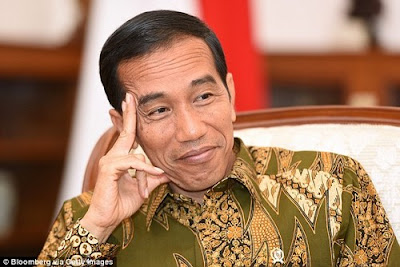 |
| Indonesia's President Joko Widodo |
Indonesia's President Joko Widodo will intervene if an Australian resident charged with murder is sentenced to death. Indonesia's Justice Minister Yasonna Laoly says Indonesia will honour a guarantee to Australia that Jessica Wongso will not be executed.
"As a state we have to respect the international agreement," Mr Laoly said.
He has also revealed that Wongso may never have gone to trial but for Australian Federal Police (AFP) assistance with the case.
Wongso will face a Jakarta court on Wednesday charged with the murder by cyanide poisoning of her friend Mirna Salihin.
Ms Salihin, who had also lived in Australia and studied in Sydney with Wongso, died shortly after drinking a Vietnamese iced coffee ordered by her friend in an upmarket Jakarta cafe.
Police say Wongso poured cyanide into the coffee.
Wongso lived in Sydney until shortly before Ms Salihin's death, and the AFP helped Jakarta detectives work on the case.
Jakarta police travelled to Australia as part of their investigations and worked with AFP officers.
Justice Minister Michael Keenan said he approved AFP assistance after Indonesia promised Wongso would not face the death penalty if convicted.
Australian evidence crucial in case against Wongso
District Court spokesman and judge Jamaluddin Samosir, who will try the case, told the ABC earlier this month that a deal to strike-out the death penalty "was not possible".
Judge Jamaluddin said: "The judges can decide any penalty they want. We are independent, there can be no intervention."
That statement caused a stir in Indonesia.
"Of course the judges have independence. But in a state system, the institutions will respect an agreement made with another country," Mr Laoly responded yesterday.
"If the judicial process ignores the guarantee, the president has power (to give clemency)."
Mr Laoly said the AFP assistance was crucial in helping the case become "clearer".
"She almost got away for the sake of regulations," he said.
"If we did not get the evidence provided by Australia, how could we proceed?"
Prosecutors repeatedly refused to accept a police file on the case because of a lack of evidence in the brief of evidence.
Under Indonesian law, suspects must be released after 90 days in custody if the case has not been passed on to prosecutors.
Source: abc.net.au, June 14, 2016










